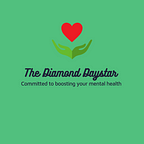SOCIAL CLOCK AS A FACTOR IN DEPRESSION
Somewhere in the world today there is a young adult who’s told that his mates are in college, a lady who’s reminded that she’s ripe enough for marriage, a man who feels left behind for being unemployed at his age and then there’s you, yes YOU!. What time is it on your social clock? How far are you behind schedule or perhaps how early? Let’s face it, the stigma is not only for the latecomers but also the precocious. So regardless of which side of the clock you fall into, as long as you’re not on time, you’re not keeping to time.
Social clock, a term proposed by Social Psychologist Bernice Neugarten is the set of norms governing the ages at which certain life events like graduation, marriage , employment , change in social status or retirement occurs. These set of norms are determined by a culture or social structure. The Social Clock Theory defines Social Clock as age-graded expectations for life events. This social clock varies across time, periods and societies.
Depression ( Major Depressive Disorder) according to an article reviewed by Ranna Parekh titled "What is depression?" published on www.psychiatry.org is a common and serious medical illness that negatively affects how you feel, the way you think and how you act. The symptoms according to the Diagnostic and Statistical Manual Of Mental Disorders (DSM-5) includes fatigue, insomnia or hypersomnia, psychomotor agitation or retardation observable by others, indecisiveness, recurrent thoughts of death or suicidal ideation, weight changes amongst others. These symptoms varies from mild to severe.
Several factors like biochemistry, genetics, personality and environment may play a role in depression. Social Clock can be viewed as an environmental factor which also affects the personality of an individual towards predisposing such individual to depression. Lack of conformity to time frames of life events can have an adverse effect on self-image and self-efficacy. This may result in loss of self-esteem. A person with low esteem is more likely to be depressed. A person who doesn’t adhere to the social clock is therefore likely to become depressed as a result.
However, our self-concept which means our thoughts and feelings according to Carl Rogers, a Humanistic Psychology is important in mitigating against depression resulting from non-conformity to the social clock. It doesn’t matter whether we’re on-time, late or early by societal standards, what matters is that we have the highest positive regard for ourselves. Just like unconditional positive regard or unconditional love is important in our relationship with others, it’s of Paramount importance in our relationship with ourselves.
So whenever you feel like you’re not keeping to time on your social clock, ask yourself what time it is on your mental health clock. After all you can’t keep to the social clock without a clean bill of health. The principal goal and highest need of every human being according to Abraham Maslow is Self-actualization. This ability has nothing to do with the social Clock. Self-motivation, unconditional positive self regard and willingness to seek help are tools that will help when an off time threatens to plunge you into depression.
©The Diamond Daystar
The Diamond Daystar is a female who remains young at heart. The pen name is a symbol of who she wants to be . She’s a diamond because of her tenacity, strength and perseverance. A daystar; shining brightly in darkness and light.
